How Fashion Schools Outside Of Fashion Capitals Attract Top Talent
What makes a good fashion program? Is it the professors? A hands-on curriculum? The industry connections? The post-graduation opportunities? Most likely, it's a combination of multiple factors — elements found in numerous colleges, universities and institutes worldwide. And yet, only a select few of these schools get the continuous recognition they deserve, while others are left out of the limelight.
Fashion, while global, is also concentrated in terms of industry opportunities, with experiences infamously rooted in "fashion hubs" like New York City and Los Angeles in the U.S. This is a big draw for aspiring industry professionals to enroll in higher education programs in those cities — however, there are plenty of colleges and universities spread across the country (and not necessarily near one of these "hubs") that have not only built curriculums that compete with those of their NYC and LA counterparts, but also continue to attract a plethora of talent.
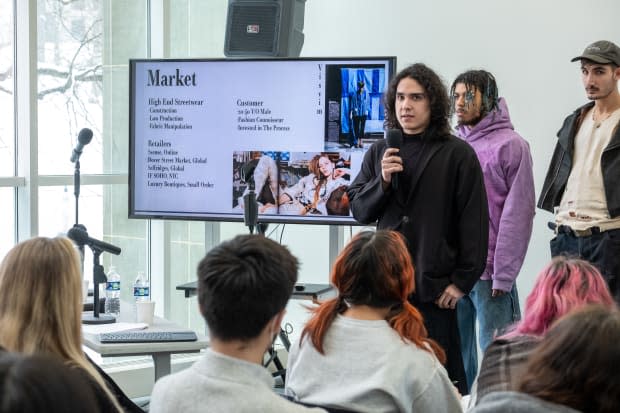
Photo: Courtesy of Kent State University
For Mia Moumdjian, a recent graduate of Kent State University's fashion merchandising program, affordability and enjoying the traditional college experience — all while receiving a quality fashion education — played a big part in her decision to enroll at the Ohio school.
"I think what makes Kent competitive is the fact that it's about the experience you want to have," she says. "For me, it was like, 'I want to go to college — to go to college. I wanted to have fun, I wanted to be a student... I feel like if I went to somewhere in New York, I wouldn't have gotten that."
Kent State's midwest roots haven't stopped it from building internationally-ranked fashion design and merchandising programs. In the latter, students learn about the industry on a broader scale, touching on nearly every aspect of the business of fashion — resulting in a "very well-rounded" education, Moumdjian argues. (Full disclosure: I'm also a recent Kent State grad.)
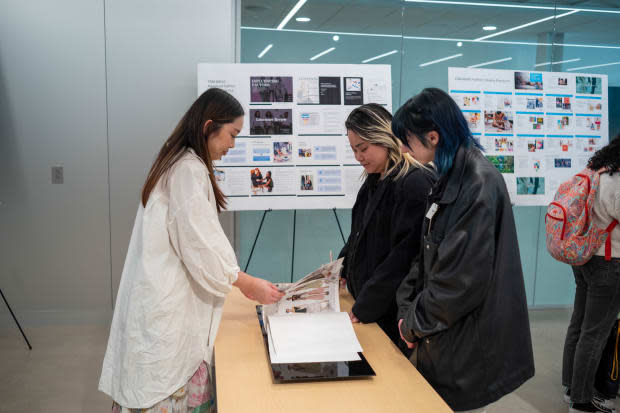
Photo: Courtesy of Kent State University
Dr. LeAnn Starlin-Nilsson, assistant dean of recruitment and retention for the College of the Arts at Kent State, notes that the well-rounded experience it offers goes beyond the classroom.
"You're not just around students who are in art and design majors," she says. "Part of it's training for your career, but within a larger university system, you're going to come up against students who have different views than you and have different backgrounds than you. And so part of that is [understanding] that's real life. That's what life is like when you get into the workplace."
Kent State's School of Fashion introduces major-specific courses into students' schedules starting freshman year, allowing the opportunity to engage in the program from day one. It not only lets them acquire core industry skills to hone in on early, but it better informs them in the event fashion isn’t what they want to pursue.
Not too far from New York, the Rhode Island School of Design (RISD) offers an education matched to schools in major cities while being rooted in a more serene setting.
"I think that [for] the students that choose RISD, the [design] studio is the place where they find community and develop community," says Dr. Lisa Morgan, department head of apparel design. "And because there aren't all the distractions that you get in a city, they really do focus on their work [...] They know that it's them and their work, and they're communing with their work and that they literally live their practice [and] their processes."

Photo: Jo Sittenfeld/Courtesy of RISD
Perhaps where RISD's fashion design program really finds its differentiation is in its integral focus on craft and encouraging students to develop styles unique to them.
"When we look at the students' body of work, each one is so particular to who that student is, informed by their identity, gender politics, their cultural background, their heritage [or] where they've grown up," Morgan says.
The small class sizes and student-to-faculty ratio further support the enriching experience from both a personal and professional development perspective, she adds, as "you can't speak to the work without speaking to the person."
Savannah College of Art and Design (SCAD) also offers students a strong sense of community and a focus on cultivating your own individual style. "Because there are less outside distractions in a city like Savannah, it really makes you focus as a designer on sort of defining your own voice," says Dirk Standen, dean of its School of Fashion. "There's also an incredibly tight-knit community of students here. There's something about students coming from all over the U.S. [and] all over the world to this relatively small city, and then spending intense amount of time working very closely together over four years, that creates a sense of community that I feel is really unique."
It's no secret that fashion is competitive, and students will maximize internship and networking opportunities to find their footing in the industry long before they graduate. Many of these opportunities are based in New York City and Los Angeles, but fashion programs outside of these vicinities have found ways to offer their students equally invaluable work and mentoring experiences.
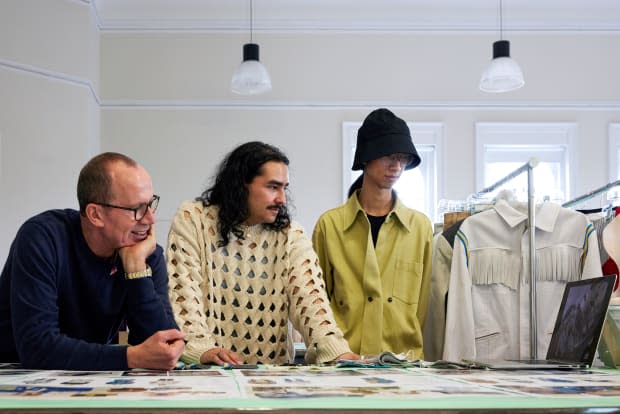
Photo: Courtesy of SCAD
"We might not be in New York, but we bring New York to Savannah," Standen says.
SCAD focuses heavily on providing students with networking and mentoring with designers (such as Anna Sui, LaQuan Smith and Emily Adams Bode) and journalists (like Vanessa Friedman and Nicole Phelps) — many of whom visit the campus in-person — to tap into for optimal success. It'll also give them access to a wealth of the latest tools, from 3D printers to digital print labs.
Kent State's expansive network includes over 500 industry partners, with connections to companies such as Christian Siriano, Bloomingdale's and Abercrombie & Fitch.
Mallie Reed, a soon-to-be apparel design and production graduate of Auburn University, was initially worried about finding a job in fashion after college, due to the university's location in Alabama, but has since resolved any skepticism: From a required internship credit to a database full of job openings around the country to a hands-on learning experience, the school's fashion program generates a long list of graduates thriving in every corner of the industry. Furthermore, Reed calls attention to the department having "an amazing program for beginners."
"They taught us a very old-fashioned way of pattern-making with paper, drawing out everything," she says. "They didn't show us how to do it online, just so we knew every single step to take — so, when we do adapt to it online, it's so much quicker and easier."
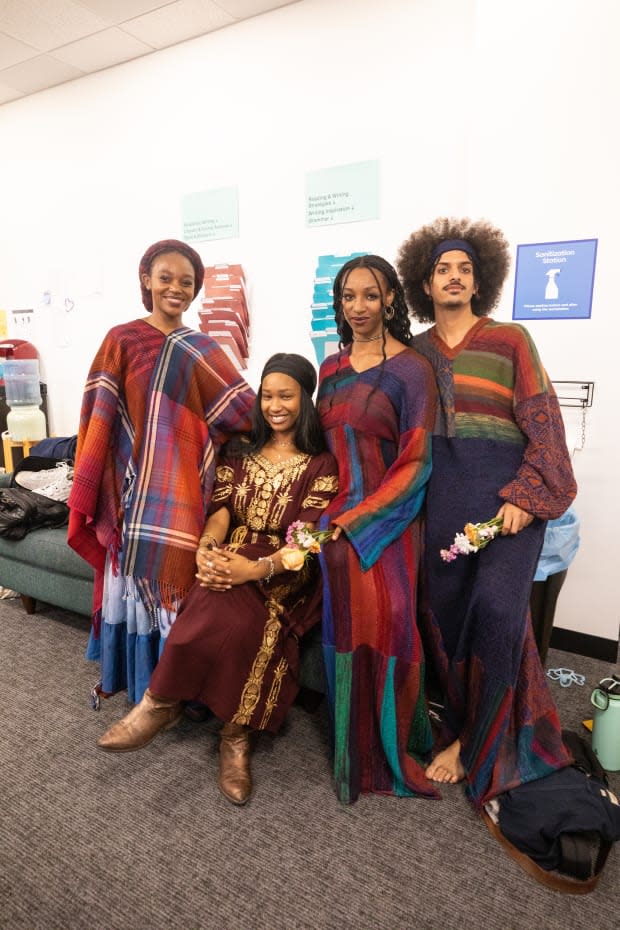
Photo: Jo Sittenfeld/Courtesy of RISD
Fashion is an ever-evolving industry, meaning it's essential for these schools to adapt to the times — not only to remain competitive, but also to better prepare their students to thrive post-graduation.
SCAD has kept its eyes on the technological developments in fashion, ensuring each design student studies Clo3D and offering classes that incorporate emerging issues, such as a "Future of Shopping" course in the Fashion Marketing department that discusses AI.
"We still have a focus on construction and craft, [but] I think the future will be a marriage of the craft and the technology, so we definitely still want to make sure we're focusing on both things," Standen says.
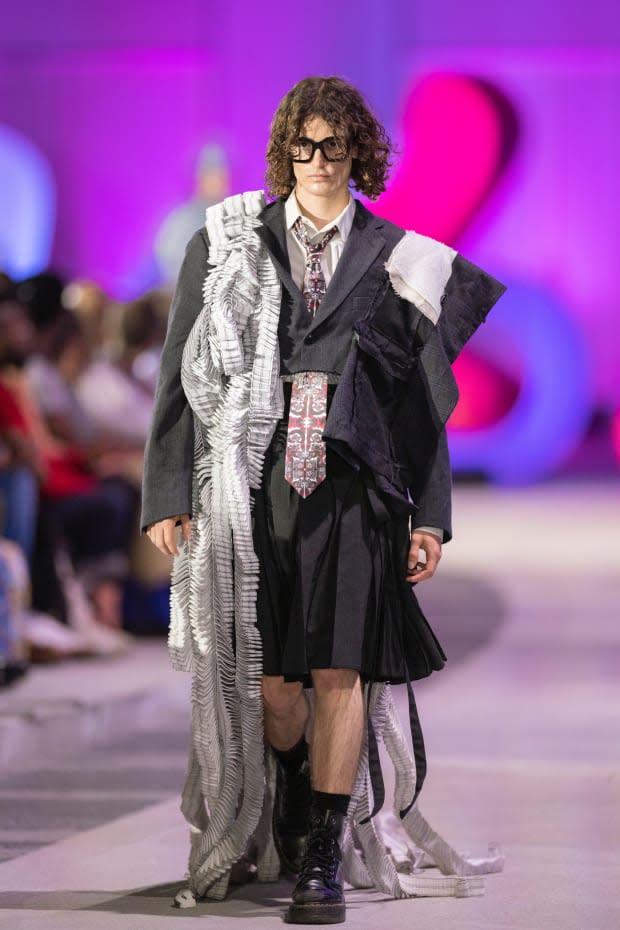
Photo: Courtesy of SCAD
Similarly, RISD is evolving its curriculum in response to shifts in the industry, especially in the wake of Covid-19. "One of the important questions that we need to be asking is not just what clothing is, but what does clothing do," Morgan says, "really thinking about slowing down, rethinking and reinventing."
In the interest of offering a more "interdisciplinary perspective," the school is "opening up some of the electives or core classes so that students have more possibility to actually take classes outside of apparel," she explains: "That focus on craft and slowness is very much part of what we're moving forward as a need, to counter the fast and relentless cycle of fashion. To think about reparative practices, to think about equity and inclusion within the practices, but also to think about sustainability — not necessarily just from a materials perspective, but actually how can you develop the practice [so] that you can sustain in such a way that you can continue to make positive changes with that practice."
From their considerable industry connections to their alumni network to their intensive (but still encouraging) curriculums, these programs outside of big fashion cities continue to attract students who see their benefits and who still enter the industry with confidence.
Never miss the latest fashion industry news. Sign up for the Fashionista daily newsletter.
